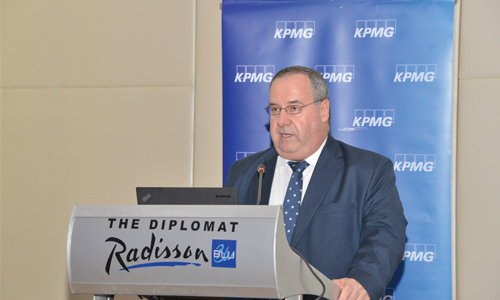Businesses need proper planning to minimise VAT impact: Experts
Manama : The Value Added Tax (VAT) to be introduced in the Kingdom will impact all businesses, either directly or indirectly. However, it will have a neutral impact if managed effectively, said Ali Al Mahroos, Manager, Tax and Corporate Services, KPMG Bahrain.
Reacting to the Kingdom’s joining of the GCC VAT agreement, he said: “The first step businesses must take today is to plan and analyse how their products and services will be impacted. If businesses are to maintain profitability, they must study the impact of VAT on their businesses from an operational point of view. Before implementation, businesses can build and test systems and processes to ensure compliance with the legislation and embed these within existing processes. There are also immediate measures which businesses can take to avoid the impact of VAT, for example making planned investments in business infrastructure and assets before implementation begins.”
VAT is a tax on consumption of goods and services levied at each stage in the supply chain and payable ultimately by the consumer. GCC countries will introduce five per cent VAT as part of wider development reforms to diversify revenue streams and ensure sustainable growth.
Gulf Cooperation Council (GCC) countries face several challenges for the smooth implementation of VAT, said Craig Richardson, Partner and Head of Tax and Corporate Services at KPMG, Bahrain. “If Bahrain plans to implement VAT starting from January 2018, several steps need to be taken, especially enactment of a national law at least eight months prior to the implementation to prepare for the implementation of the new tax,” Richardson added. He said the impact of VAT would extend to the government sector as well. VAT requires monthly or quarterly filing of tax returns.The tax authorities will also need to process refunds regularly and have robust IT systems in place to facilitate e-filing and e-communication with taxpayers.
“Since VAT is a new concept businesses and tax authorities in each GCC country will have to recruit and train staff. In addition, governance frameworks may also need to be reviewed and updated to incorporate policies, processes and controls that comply with VAT legislation, ” he added.
Ali Al Mahroos, Manager, Tax and Corporate Services, KPMG Bahrain.
Craig Richardson, Partner and Head of Tax and Corporate Services at KPMG, Bahrain.
Related Posts



